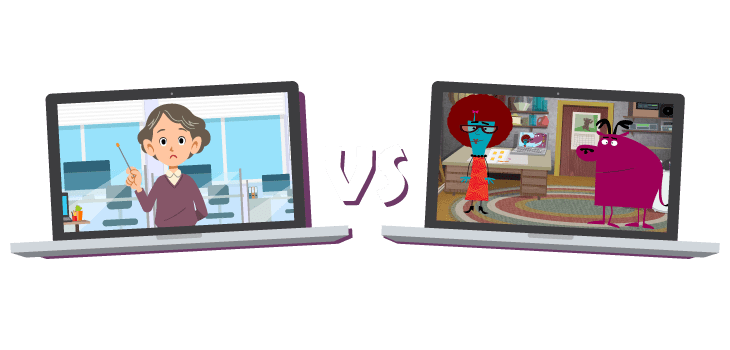But if your child is learning remotely from home, does that mean you’re homeschooling? The answer is no. Remote, or distance learning, is not the same as online homeschooling. So what are the differences, and why does it matter for your child?
There are several key differences between homeschooling and distance learning, and understanding them can help you make the best decision for your child, and family. Distance or remote learning is teacher-led, and directed by individual school districts, which follow strict schedules and a specific curriculum for all learners, regardless of individual skill levels. Homeschooling, on the other hand, is parent-led, empowering families with unparalleled flexibility when it comes to what, where, when and how their children learn.
The table below highlights the main differences between the two:
| Remote/Distance Learning | Online Homeschooling |
|---|---|
| Instruction is led by a teacher(s) and tends to follow a one-size-fits-all approach. | Parents have control of what their children learn and can use the curriculum and resources that are best for their child’s unique needs. |
| Usually follows a specific schedule set by the local school district. | Students can log in and learn when it’s best for them. |
| Students progress at the pace of their entire class, regardless of whether they’ve mastered a concept or not. | Students can work at their own pace and take their time with challenging topics/subjects. |
| If a student falls behind, it’s up to you, the parent, to seek additional help in the form of tutors or afterschool enrichment. | Material/curriculum can be adapted to your child’s individual learning preferences. |
| Highly structured. | Fully flexible to your family’s needs. |
To summarize, during remote/distance learning, the school determines the start and end date of the school year, the schedule (i.e., when students must be online), breaks/vacations, and curriculum (including subject areas and elective offerings). Homeschoolers decide all these things, and they can also modify instruction to meet their children’s strengths and needs, interests, and best methods of learning. Homeschoolers can even adjust the grade level by individual subject and slow down or speed up based on the child’s skill level and understanding of material. Homeschooling is simply more flexible!
Supplementing with Online Learning
Many parents have decided to take matters into their own hands by adding high-quality, engaging, educational experiences for their children through an online program.
Time4Learning offers a comprehensive program for preschool through href=”https://www.time4learning.com/homeschool-curriculum/high-school.html”>high school that can be used in different ways and tailored to meet an individual child’s specific needs. This way, a child who is having difficulty in math, for example, can supplement school instruction with interactive videos, engaging lessons, and other activities that will help improve math skills and reduce any gaps in learning.
Here’s what one parent had to say about a time when local schools were closed due to the pandemic:
“As a parent who works from home and homeschools one child, I found myself overseeing schoolwork for three other children from different schools. One was remote learning in a very structured environment, but the other two only received independent work with almost no interaction with teachers. These two children were ‘done’ with school in about two hours every day. I felt responsible, so I ‘created’ a full school day for them with activities based on my own child’s Time4Learning lessons.”








I love time for learning
The feeling is mutual, Kaitlin! We love our Time4Learning members! 🙂